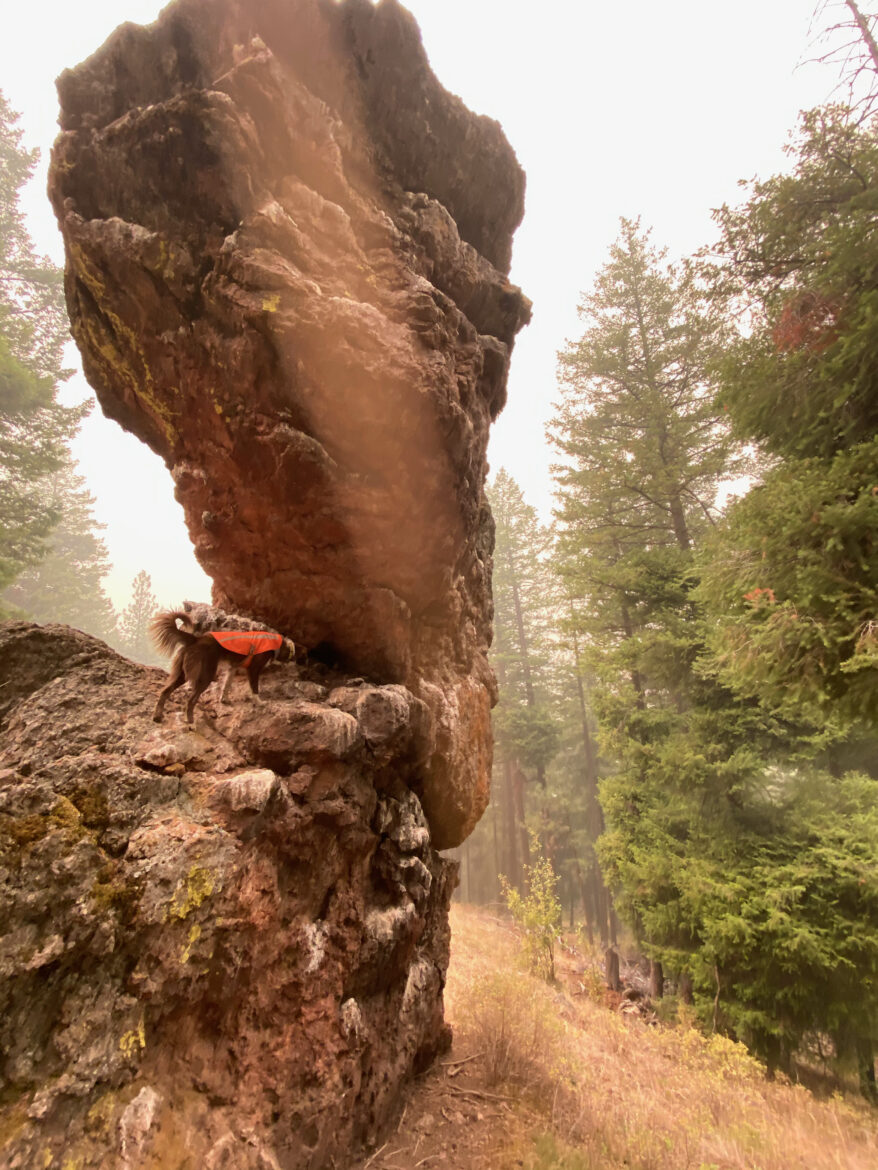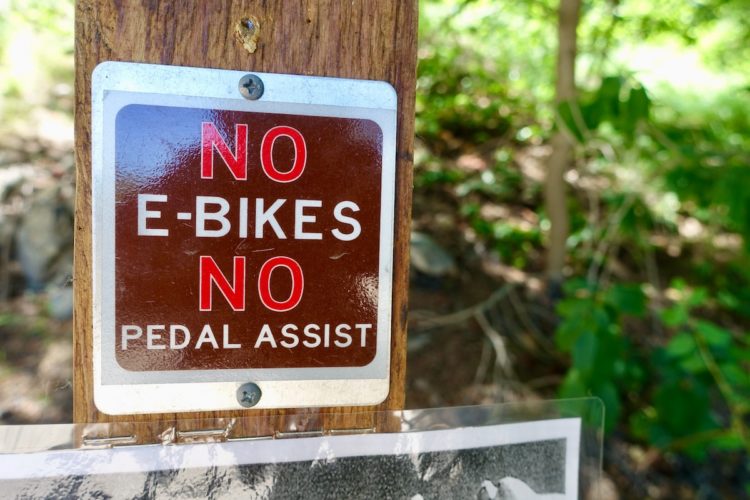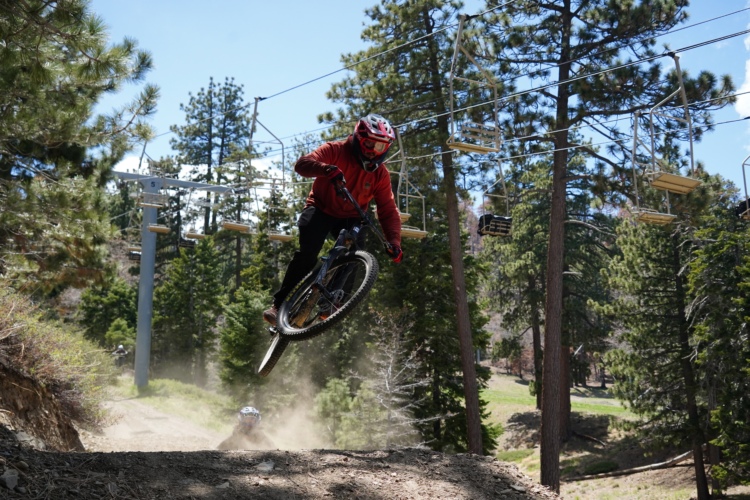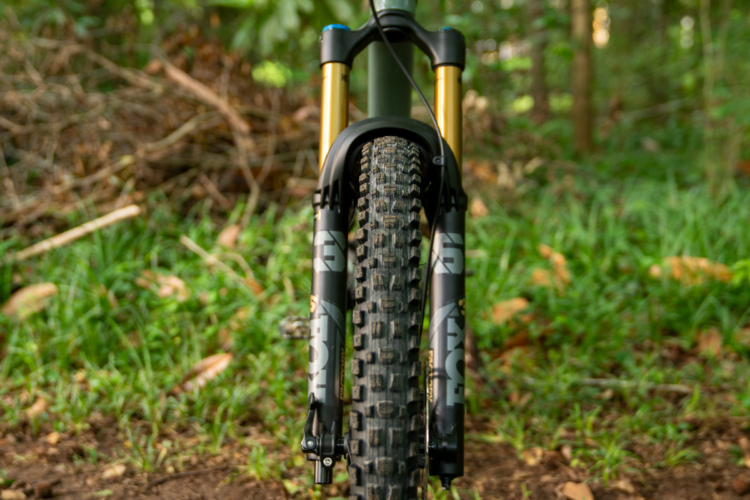
About 35 miles from the mountain bike mecca of Bend, Oregon lies Prineville, population 10,429 (2020). Surrounded by Ochoco National Forest (ONF), it is a small town in a rural county in the west that—like so many others—is experiencing change. When the group Ochoco Trails proposed a broad suite of ideas for new trails, improvements to existing trails, horse camps, staging areas and the like over a diverse landscape within the ONF in 2018, they and their many partner organizations had good reason to be encouraged. There was horse stuff for the horse people, bike stuff for the bike people, all with a relatively light footprint on the land and wildlife habitat. What’s not to love?
For the small but vocal group “Don’t Bend Prineville,” the answer to that question is—All of It. Don’t Bend Prineville (DBP) does not have a website or a discernable head of organization, but their Facebook page states the group’s mission as “A Grassroots Movement to Keep the Custom and Culture of Prineville and Crook County Through Thoughtful well-Managed Growth.”
“Bend is the poster child for radical change in Central Oregon, in a few short decades it’s gone from timber and logging to a tourist destination” said Christopher Joosen, Recreation, Heritage, Lands and Partnerships Staff Officer with the Ochoco National Forest. As such, Joosen understands the concerns of DBP, but notes that National Forest lands belong to the American people and that “one (use) doesn’t eliminate the other, that we can preserve heritage and provide for recreation uses at the same time.”

So what’s in this plan anyway—the one that DBP fears will “Bendify” Prineville? The Forest Service is currently evaluating four alternatives in the Lemon Gulch area outside Prineville via the NEPA—National Environmental Policy Act—process ranging from the “no project” or zero new miles alternative to three others that include between 19 and 51 miles of trails ranging in difficulty from beginner to advanced. While these trails would technically be multi-use and available to all, they would also be purpose-built for mountain biking.
Travis Holman, Board of Directors Vice President for COTA—Central Oregon Trails Alliance—noted that the proposed Lemon Gulch trails will provide a little bit of everything. “This system would provide for a diverse skill range. There would be more techy rock trails here than in the rest of Oregon, and technical trails are badly needed. The Lemon Gulch trails will be designed with mountain bikers in mind, with directional downhill, shuttle-able routes as well as a 15-mile cross country ridge ride.”

If that doesn’t sound very horse-friendly, you’re right. It’s not. But Lemon Gulch is only one part of a larger proposal and horse facilities are a part of the overall plan.
Kim McCarrel is a long-time resident of Bend and represents both Oregon Equestrian Trails and Backcountry Horsemen at Ochoco Trails. Hearing from fellow equestrians about increasing conflicts between riders of bikes and riders of horses, she describes having an “Aha!” moment. “If we build more bike trails, there will be less bikers on hiker and equestrian trails!” This sensible, fair-minded and frankly generous outlook also underpins Ochoco Trails, a group whose mission statement describes “…a community-based coalition dedicated to building and maintaining a sustainable non-motorized trail system that offers a desirable range of experiences, while protecting and enhancing forest resources for future generations.”
Formed in 2017 in response to increasing growth and occasional trail conflict between bikers and equestrians at nearby Lookout Mountain, Ochoco Trails is an umbrella organization that collaborates with a diverse array of organizations including Oregon Equestrian Trails, Central Oregon Trails Alliance (COTA), Oregon Wild, Oregon Hunters Association and the U.S. Forest Service.
“Not planning for recreation doesn’t mean there won’t be recreation. People will build their own trails. Change is coming and we feel it’s best to plan for it” said Darlene Henderson, Chair of Ochoco Trails.
“Before the Ochoco Trails group formed, we were getting conflicting proposals from different user groups. They brought respective interests to the table and made a lot of ‘deconflicting progress’” noted Joosen with the Forest Service.
When I asked each of these representatives from different organizations and perspectives what Don’t Bend Prineville’s specific objections to the proposal are, each were at a loss. The words “change”, “fear”, “demographics”, “NIMBY” and “culture war” weaved through the respective comments. In reaching out to the DBP Facebook page referenced above requesting an interview for this story, the response I received from Jerry Boyd was as follows:
“One would think that the mountain biking community would be all about protecting the environment. But in the case of the Lemon Gulch project that is anything but true. This proposal, with huge inroads into wilderness country for bike paths as well as massive parking/staging areas, would have massive, negative impacts on the environment and ecology of the area. Aside from the adverse impacts on adjacent ranch lands such an extensive project will disrupt the habitat of deer, elk, bear, and dozens of other animal species that call this area home. The Forest Service in pushing this project has ignored its own rules. They need to start the process over and do it right this time. And for the potential mountain bike users of this proposed project, most of whom are from out of the area, why don’t you use what is already available without the disruption this project will cause? There are literally hundreds of miles of existing forest service roads in the region that responsible riders could use. Those who live in Crook County and are riders do exactly that and those pushing for this project should as well.”
Representatives from Ochoco Trails, COTA and the US Forest Service all reference the fact that COTA, the only organization among those represented by Ochoco Trails with a specific mountain biking focus, had submitted four trail proposals to the Forest Service for initial feedback. Of those four, only the Lemon Gulch area made it past a first screening for sensitive resources like elk, was in a location already disturbed by previous and ongoing grazing, and was in close enough proximity to the town that it would provide a tangible public access benefit. And as for the above-referenced “massive parking/staging areas,” a 20-vehicle lot is proposed with a single vault toilet.
In keeping with its proscribed process, the Forest Service then embarked on the public scoping for NEPA and held several public meetings and a site visit with adjacent residents and grazing permit holders. The Service did in fact feel it had not received enough input from interested parties and paused the process for five months in order to collect more data, and to hear more feedback. The result of the NEPA process is an Environmental Assessment due out in June of this year.
Kim McCarrel the equestrian summed it up thusly: “Bikes are a symbol of change. And not everybody likes change. The timber industry has dried up, grazing continues, but it’s harder—fences, urbanization, all of these make it harder to make a living in the same way. Heck, little Prineville got a Facebook data center. The complexion of the town is changing.”












6 Comments
May 28, 2022
Roads
I haven't studied this area, so I don't have an opinion on the viability or suitability of the area for trail development. But when an anti mountain bike advocate says there's plenty of ROADS you can ride, you know right away, he has no intention of discussing the issue rationally or negotiating in good faith.
May 29, 2022
May 31, 2022
May 25, 2022
East Burke, Vermont has discovered there are problems when the bike trails attract more visitors than your infrastructure can support.
May 25, 2022
May 25, 2022